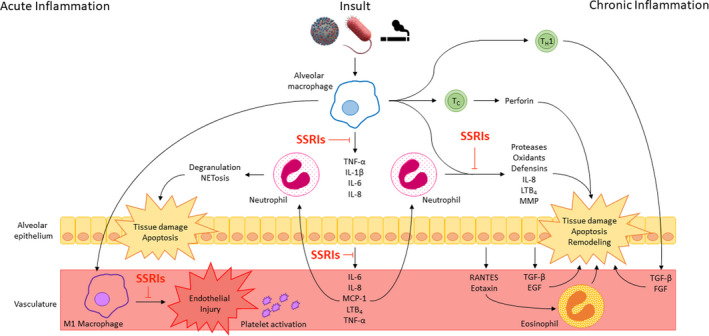FIGURE 1.

Mechanism of SSRI modulation in pulmonary inflammatory disease. Infectious and inflammatory insults stimulate NF‐κB translocation and cytokine release in alveolar macrophages and epithelial cells. These cytokines recruit neutrophils to the lung, leading to tissue damage and apoptosis. In acute inflammatory disease, M1 macrophages stimulate platelet activation and endothelial injury, and activated platelets recruit neutrophils and promote NET formation, mediating further tissue damage. In chronic disease, T cells lead to direct and indirect tissue damage and promote remodeling associated with decreased pulmonary function. SSRIs reduce pulmonary inflammation in each of these pathways by inhibiting 1 NF‐κB activity, (2) downstream cytokine release, and (3) cellular activity by impairing serotonin reuptake by SERT
